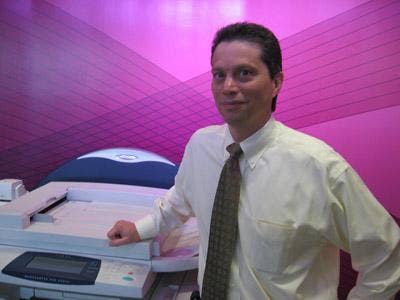Vendors Ramp Up Services: What It Means To VARs

Our competitors [entering into services] seem to talk about IBM as a model, and then they talk about providing a channel for their product. That seems to come from an old playbook. When customers engage to streamline business, they look for high value, and want advice and the consul of best technologies. The fact that we have a close relationship with customers and have industry focus within business positions us to provide that value and allows us to proudly recommend technology.
We are really focusing on higher value for our customers. We're steering away from commodities and looking at higher value, software and service. Hardware is still an important part of our business, but software and services are a driving force as customers need solutions. Our dialog is about solutions rather than pieces of tech.

We've moved over time from a singular channel. We learned the hard lesson that customers don't buy that way. Our strategy is to determine how the customer wants to buy, and then feed prod to them. We gain efficiencies through VARs, and certainly they can provide unique solutions. As you go through each segment, each offers unique value. Things always change over time. We've found VARs to be part of a very resilient, flexible and nimble community. To the extent that one VAR might want to do something the same way as five years ago, that might be challenged. We know we need the channel, and we are looking to partner for years to come.

[Xerox's recent purchase of Affiliated Computer Services] marks further evidence of the continuing trend toward industry consolidation, coming on the heels of Dell's acquisition of Perot Systems.
Expect more industry players to be active on the M&A front in the near term; likely players include CSC, CGI, Unisys, Capgemini and Atos Origin. Also, India-based players are likely to enter the fray. Dissimilar companies will continue to integrate complementary offerings, signaled by the trend of outsourcing providers seeking synergies between products and services.
Some VARs should consider being acquired; a growing proportion are willing to be acquired. You don't want to be last one to be sold, because your value drops over time. If you want to stay independent, build deep relationships. That's an antidote to this. If you can do that, that's wonderful, but it's very hard.

Our focus is to transform the way services are provided. Look back five to 10 years ago -- services were provided on a custom basis. Each customer gets its own custom solution. We're transforming that to a one-to-many model. We're developing services so you can set up a service that meets many customer requirements.
What we are doing at IBM is beneficial because what we're doing is creating service products that are more easy for solution providers to sell -- defined and prepriced, based on service scope, and they are easy to understand. We often work with partners so they can provide services in advance and can resell these products. It's efficient and effective, and affordable to the SMB market. Packaging services this way creates more opportunities for resellers in the SMB market.

This [services] will be a trend for the next couple of years, maybe more. Ultimately, Dell is trying to sell hardware, services and solutions to customers. Software will go to the cloud, through SaaS, a utility model. It will become utility computing -- how you get power today, that's how you'll get software delivered. Managed services will be a piece of this.
Google will become more competitive to Dell from that standpoint. They are more of a player than people think of them right now.
The next deal will be a services company for Oracle. Maybe a large Indian offshore vendor -- the service portion can be decoupled and offered separately. They offer quality service at cheap cost. They lack a deep customer connection, but Oracle has that.